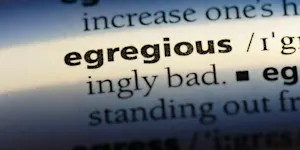What Makes This Word Tick
"Gravitate" is a dynamic word that conveys movement and attraction. Imagine it like a magnet silently pulling you toward what you find captivating, such as a buzzing crowd at the county fair or the aroma of freshly baked bread. It’s about the gentle yet undeniable pull that some things exert on our attention or presence.
If Gravitate Were a Person…
Gravitate would be that charming host at a neighborhood party, always drawing people in with an infectious smile and an uncanny ability to make everyone feel welcome. This person doesn’t demand attention; instead, their warmth and charisma naturally attract others.
How This Word Has Changed Over Time
Originally, "gravitate" was all about gravity—as in physics. Over time, however, it has taken on a more metaphorical meaning, with people using it to express subtle inclinations or attractions, devoid of scientific equations. It now dances across conversations about interests, ideas, and relationships.
Old Sayings and Proverbs That Use Gravitate
While there aren't any ancient proverbs that directly use "gravitate," the sentiment can be found in phrases like "birds of a feather flock together," suggesting a natural inclination or attraction to those similar to us.
Surprising Facts About Gravitate
Did you know that "gravitate" often appears in scientific contexts? Yet, in our everyday lives, we often use it to express emotional or social pulls, proving the word's versatility.
Out and About With This Word
Walk into any lively bookstore, and you'll see bibliophiles who gravitate towards their favorite sections. Whether it's the latest mystery thrillers or beloved classic novels, everyone feels the magnetic tug toward their preferred literary genres.
Pop Culture Moments Where Gravitate Was Used
The word "gravitate" often pops up in song lyrics and TV shows, describing romantic or inexplicable attractions. From the irresistible pull of romance in a ballad to the allure of the latest gadget, it captures our magnetic fascinations.
The Word in Literature
Authors have long loved "gravitate" for its ability to describe character dynamics or plot developments. In literary works, it often illustrates how characters are irresistibly drawn to something or someone, adding depth to personal journeys.
Moments in History with Gravitate
Think of pivotal moments like the signing of the Declaration of Independence, where figures gravitated towards liberty and justice, rallying together with a shared vision. It’s a word that encapsulates the draw of great causes throughout history.
This Word Around the World
Globally, languages express the concept of gravitating through varied words and idioms, each capturing the essence of attraction due to charm or interest. For instance, in Spanish, one might say "sentirse atraído por," echoing the universal experience of being drawn to something.
Where Does It Come From?
"Gravitate" comes from the New Latin "gravitāre," related to "gravitas," meaning weight or heaviness. It beautifully merges the physical and metaphorical, drawing on the concept of gravity in its most enchanting sense.
How People Misuse This Word
A common error is using "gravitate" to imply forcefulness, when in fact, it’s more about a natural, subtle pull. It’s not about pushing people or things somewhere; it’s about the effortless attraction.
Words It’s Often Confused With
Attract: While "gravitate" implies a subtle pull, "attract" can suggest a more deliberate action.
Draw: Similar, but "draw" might convey a stronger force or pull.
Magnetize: More commonly used in scientific or specialized contexts.
Additional Synonyms and Antonyms
Synonyms for "gravitate" include drift, incline, and lean. Antonyms might be repel or avoid, showcasing a lack of pull or interest.
Want to Try It Out in a Sentence?
"Even at the bustling art gallery, she found herself always gravitating toward the serene landscapes, each piece drawing her in with its tranquil beauty."
















